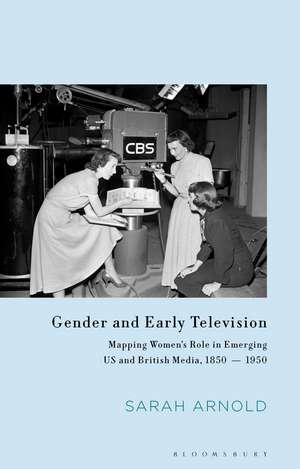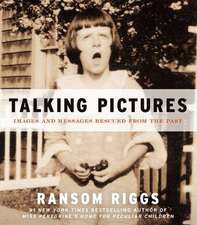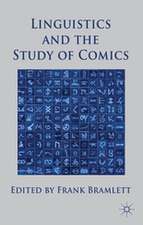Gender and Early Television: Mapping Women’s Role in Emerging US and British Media, 1850-1950: Library of Gender and Popular Culture
Autor Sarah Arnolden Limba Engleză Hardback – 16 iun 2021
| Toate formatele și edițiile | Preț | Express |
|---|---|---|
| Paperback (1) | 191.56 lei 6-8 săpt. | |
| Bloomsbury Publishing – 28 dec 2022 | 191.56 lei 6-8 săpt. | |
| Hardback (1) | 568.71 lei 3-5 săpt. | +120.19 lei 4-10 zile |
| Bloomsbury Publishing – 16 iun 2021 | 568.71 lei 3-5 săpt. | +120.19 lei 4-10 zile |
Din seria Library of Gender and Popular Culture
- 22%
 Preț: 230.61 lei
Preț: 230.61 lei - 30%
 Preț: 567.99 lei
Preț: 567.99 lei - 23%
 Preț: 191.31 lei
Preț: 191.31 lei - 30%
 Preț: 656.47 lei
Preț: 656.47 lei - 23%
 Preț: 196.96 lei
Preț: 196.96 lei - 30%
 Preț: 540.09 lei
Preț: 540.09 lei - 20%
 Preț: 219.27 lei
Preț: 219.27 lei - 23%
 Preț: 174.07 lei
Preț: 174.07 lei - 23%
 Preț: 191.04 lei
Preț: 191.04 lei - 22%
 Preț: 231.34 lei
Preț: 231.34 lei - 30%
 Preț: 509.52 lei
Preț: 509.52 lei - 30%
 Preț: 540.65 lei
Preț: 540.65 lei - 30%
 Preț: 509.52 lei
Preț: 509.52 lei - 13%
 Preț: 174.25 lei
Preț: 174.25 lei - 28%
 Preț: 496.43 lei
Preț: 496.43 lei - 23%
 Preț: 197.24 lei
Preț: 197.24 lei - 23%
 Preț: 191.22 lei
Preț: 191.22 lei - 23%
 Preț: 223.28 lei
Preț: 223.28 lei - 30%
 Preț: 598.91 lei
Preț: 598.91 lei - 30%
 Preț: 510.03 lei
Preț: 510.03 lei - 24%
 Preț: 189.61 lei
Preț: 189.61 lei - 23%
 Preț: 191.56 lei
Preț: 191.56 lei - 24%
 Preț: 196.08 lei
Preț: 196.08 lei - 23%
 Preț: 146.78 lei
Preț: 146.78 lei - 21%
 Preț: 216.99 lei
Preț: 216.99 lei - 23%
 Preț: 197.24 lei
Preț: 197.24 lei - 24%
 Preț: 196.44 lei
Preț: 196.44 lei - 30%
 Preț: 538.61 lei
Preț: 538.61 lei - 23%
 Preț: 196.96 lei
Preț: 196.96 lei - 30%
 Preț: 597.87 lei
Preț: 597.87 lei - 23%
 Preț: 197.05 lei
Preț: 197.05 lei - 14%
 Preț: 176.44 lei
Preț: 176.44 lei - 23%
 Preț: 222.46 lei
Preț: 222.46 lei
Preț: 568.71 lei
Preț vechi: 815.90 lei
-30% Nou
Puncte Express: 853
Preț estimativ în valută:
108.82€ • 113.91$ • 90.57£
108.82€ • 113.91$ • 90.57£
Carte disponibilă
Livrare economică 11-25 martie
Livrare express 22-28 februarie pentru 130.18 lei
Preluare comenzi: 021 569.72.76
Specificații
ISBN-13: 9781780769769
ISBN-10: 1780769768
Pagini: 304
Dimensiuni: 138 x 216 x 25 mm
Greutate: 0.49 kg
Editura: Bloomsbury Publishing
Colecția Bloomsbury Academic
Seria Library of Gender and Popular Culture
Locul publicării:London, United Kingdom
ISBN-10: 1780769768
Pagini: 304
Dimensiuni: 138 x 216 x 25 mm
Greutate: 0.49 kg
Editura: Bloomsbury Publishing
Colecția Bloomsbury Academic
Seria Library of Gender and Popular Culture
Locul publicării:London, United Kingdom
Caracteristici
The only book to focus exclusively on women and television during television's formative years and up until its professionalisation in the 1950s
Notă biografică
Sarah Arnold is Lecturer in Media at Maynooth University, Ireland. Her previous books include Maternal Horror Film: Melodrama and Motherhood (2013) and the co-authored Film Handbook (2013). Her research focuses on women and film and television. She is a regular contributor to the Critical Studies in Television blog and RTE Brainstorm.
Cuprins
List of Illustrations Acknowledgements Series Editors' ForewordIntroduction 1. Nineteenth and early Twentieth Century Gender and Technology2. Television's Earliest Years 3. Women in Early British Television 4. Women in Early US Television 5. Populations, Consumers and Audiences 6. The US Female Television Audience 7. The British Female Television Audience Conclusion Bibliography Notes Index
Recenzii
Gender and Early Television makes an important contribution to our understanding of women's relationship to this new medium in its formative years. ... this is a highly engaging and insightful read that throws much needed new light on an under-researched topic.
Interrogating television's roots in theater and vaudeville, this smart new book shows how technology, programming, and audience research shaped US and UK women's cultural roles in the 20th century. An important book for scholars studying media, gender, and cultural history.
This is a fine addition to the scholarship that demonstrates women's elided contribution to early television and the media industries...One hopes it will be used in Media Studies Departments the world over to demonstrate that women were both there from the beginning, and that the potential of their involvement remains unrealised.
Interrogating television's roots in theater and vaudeville, this smart new book shows how technology, programming, and audience research shaped US and UK women's cultural roles in the 20th century. An important book for scholars studying media, gender, and cultural history.
This is a fine addition to the scholarship that demonstrates women's elided contribution to early television and the media industries...One hopes it will be used in Media Studies Departments the world over to demonstrate that women were both there from the beginning, and that the potential of their involvement remains unrealised.












